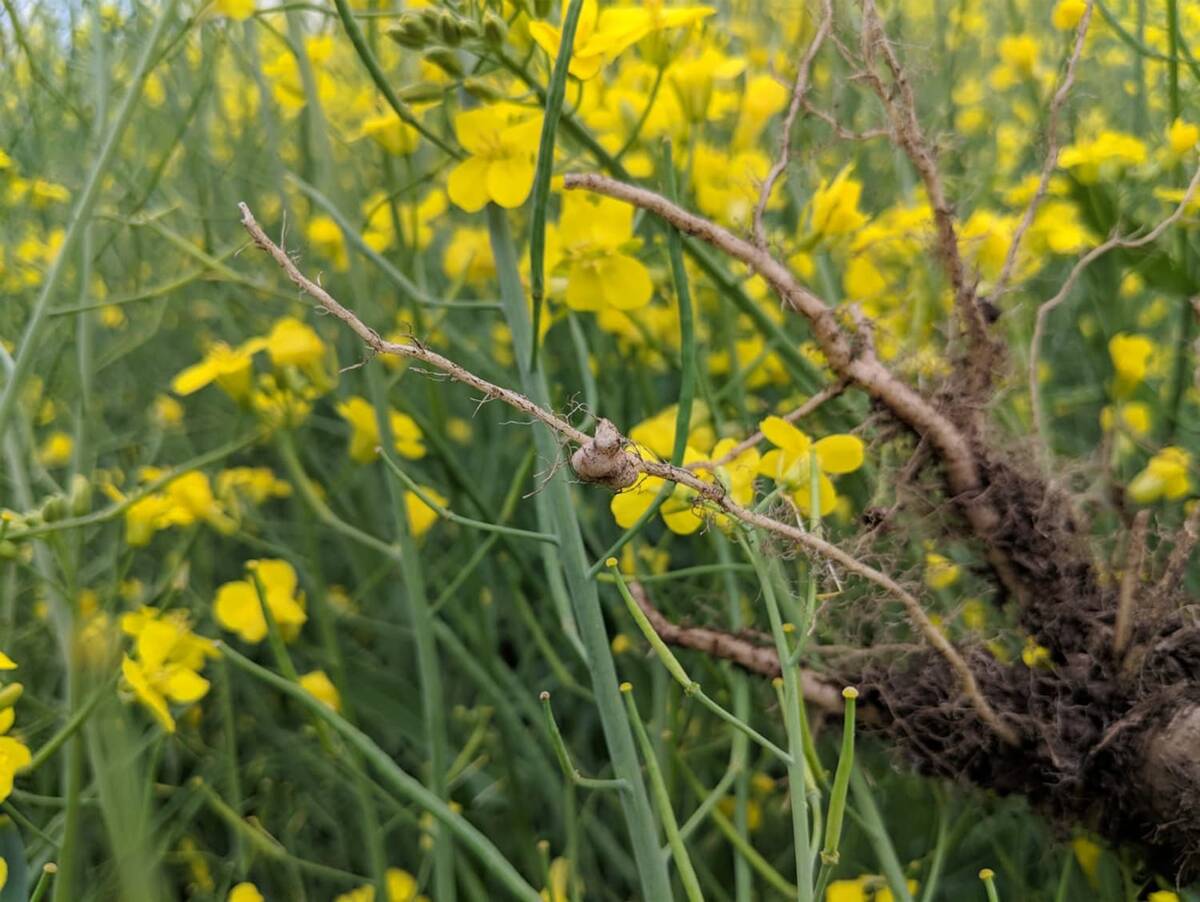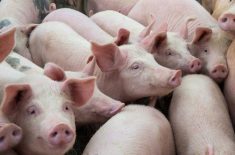VIKING, Alta. – In an empty building on Viking’s main street, a group of volunteers is giving an old flower shop a good scrubbing before it is transformed into Green party election headquarters.
Two hours down the road in Vegreville, another group of volunteers is doing the same thing.
Brian Rozmahel, farmer and Green party candidate for the Vegreville-Wainwright constituency in northeastern Alberta, sees it as a good sign: he has two constituency offices, plenty of volunteers and lots of enthusiasm.
It’s not just Rozmahel who sees the fortunes of the Green Party of Canada looking up. For the first time in the party’s 21 year history, it has more than $1 million to run its campaign, a huge increase from its average $25,000 election budget.
Read Also

Going beyond “Resistant” on crop seed labels
Variety resistance is getting more specific on crop disease pathogens, but that information must be conveyed in a way that actually helps producers make rotation decisions.
Combine the money with a growing disillusionment with traditional parties and Green party leader Jim Harris predicts that more than one Green candidate will be elected Jan. 23.
“The support for the Green party is tremendously strong,” Harris said during a telephone interview from Prince Edward Island.
More than six percent of Albertans voted Green in the last federal election. During the Alberta provincial election the party received more votes than the NDP in some ridings. Across Canada the Green party received 4.3 percent of the popular vote, up from the 2000 election when it failed to receive one percent of the votes cast.
Rozmahel believes many farmers and rural Albertans are ready to vote Green.
“Where will agriculture be in 15 years under the present system? Will there be thriving family farms and rural communities? No, but under a Green government these are our goals,” said Rozmahel, who is making agriculture and rural communities his number one campaign issue.
“I want to raise awareness of what’s happening out here in the country. Rural communities are in decline and there’s a crisis on the family farm.”
Rozmahel raises cattle, strawberries, saskatoons, chickens and turkeys on the same land his grandparents farmed. In his travels and talks with farmers, he said he has watched as their enthusiasm for agriculture drains away along with their bank accounts.
Few farmers see a viable future for agriculture and Rozmahel believes the Green party, which supports sustainable agriculture, is the only party that can turn the fortunes of agriculture around.
“Let’s make it so farmers can make a living solely off their land.”
The Green party hasn’t solidly nailed down the solutions to agriculture’s income problems, but Harris sees organics and community-shared agriculture programs as ways farmers can turn around their fortunes.
He likes the slogan, don’t panic, go organic.
“We see the rapid growth of organic farming, with chains like Loblaws rapidly expanding their produce section,” said Harris, who points to farmers’ markets across the country where farmers sell their organic produce for more money than they received when farming the traditional way.
Harris also believes in community-shared agriculture projects where city consumers pre-buy their produce from farmers at the beginning of the season and share the farmers’ crops.
“It ties people in the city back to the land so they understand the seasonality of fruits and vegetables. It results in higher farm income for the farmers who end up going organic.”
While Rozmahel doesn’t oppose organic practices or community-shared agriculture projects, he doesn’t have the same enthusiasm for them as his leader.
“Not everybody can peddle chickens.”
He said it’s not realistic to expect prairie farmers to switch from growing wheat to lettuce or give up barley for carrots. Instead, he wants farmers to receive a fair price for their crops and livestock.
Nor does he think it would be far fetched to believe a microbrewery could be established in a small town like Viking, where the barley for the beer is grown. Such a business would create jobs to keep young people in town.
“Farmers are tired of Band-Aid solutions and small cash subsidies just to keep their head above water,” said Rozmahel, who drinks fair trade coffee and does farm chores each morning before hitting the campaign trail.
Harris thinks rural voters will be attracted to the Green party by its common sense and the realization that agriculture must change to become sustainable.
“Because people live on the land and in harmony with the land, they understand this green message more than anybody else.”
But before that happens, Rozmahel must cross the vast riding over the next month, insisting that agriculture become a key topic in the election campaign.
“I don’t think it will become a huge election issue, but we’ll make it a huge election issue. Just watch me.”
















